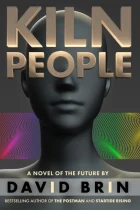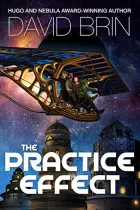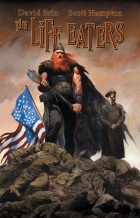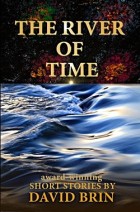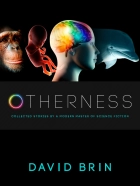I promised a cogent and careful review of Ayn Rand’s ATLAS SHRUGGED: The Motion Picture. And I’ll get to it soon. But first, may I unleash an informal screed? One scribbled in rapid response to a manifesto that was posted online a few days ago – one that I found intellectually offensive.
It’s an unbelievable essay written – in apparent sincerity – by my colleague John C. Wright (a pretty good author, by the way), in which he asserts that the long darkness called feudalism was admirable, and that – by dismal contrast – we now live in an age that is benighted by crudely materialistic modernity and a shabby shallowness of the soul. 
Commenting on the specific stretch of abject misery and ignorance known as the European Dark Ages, Wright redefines it — “or, as historians call it, ‘Late Antiquity’ or, as we Catholics call it, the ‘Lost, Glorious, Honorable, Ancient and Most Chivalric Golden Age of High Christendom…’”
He goes on:
“No one wants to die at thirty, half a mile from where he was born, unless of course he likes his home, and any patient would prefer antibiotics to leeches, I grant you. But man does not live by bread alone, or even by jet travel and space age medicine. We paid the price to enjoy the mixed blessings of the modern day, and something beyond the price we paid was lost, something precious.
“To look at mankind, who so clearly yearns for some sort of communion or reunion with nature that the pagans people the woods with nymphs and satyrs, or the nursery tales or Aesop fables with talking animals, and conclude the only possible relation between man and elf is mutual genocide is a Darwinian rather than sacramental view of life: it is simply blind to what in man, weak though it may be, is not devout to totalitarian modernism and ideas of total war. It is the world view of François de Robespierre, who guillotined the aristocracy of France like vermin, not the view of Francis of Assisi, who saluted the verminous wolf as his brother.”
Woof. Naturally, I am torn. I love a good contrarian! And Wright clearly envisions himself in that role, leveling his lance to charge against the giant, clanking, soul-grinding mill called modernity…
…even though a mere glance at the last 6000 years shows which human phenomenon is standard fare – feudalism, serving the darwinian reproductive success of brutal men – and which type of society (modernity) is the brash upstart, with all odds stacked against it.
Okay, I love a contrarian. And yet, those who have read my denunciations of romantic nostalgia – (respectful denunciation, when I speak of the honest romantic Tolkien, but disdainful when it comes to the cosmic ingrate, George Lucas) – won’t be surprised to learn that another part of me has no patience for this utter, counterfactual drivel.
Man, oh man. Where to start on this sophistry?? As if the pagan forest-lovers weren’t vastly worse-off in the era Wright idolizes? Hounded and burned at the stake by medieval catholic bishops? (OMG, which era produced copious, pastoral-loving fantasy novels?)
As if the aristocracy of 1790 France were prime examples of humanity, of wisdom and charity, instead of monstrous persecutors who stupidly hand-crafted their own fates? Or as if 99% of the noble-born Assisi’s peers were anything other than drooling-evil horrors, who only paused in their relentless reciprocal treachery long enough to join forces in a grand overall program of oppressing the serf-masses, cauterizing every low-born child’s dreams?
Zoom in upon Wright’s claim that those who criticize nostalgist romanticism “…conclude the only possible relation between man and elf is mutual genocide is a Darwinian rather than sacramental view of life: it is simply blind to what in man, weak though it may be, is not devout to totalitarian modernism and ideas of total war.”
Oh cripes. Where to begin. First. We owe absolutely nothing to $%#! elfs or wizards who clutch secret “wisdom” (what we moderns call “information about the world”) to themselves for thousands of years, leaving men and women to flounder in miserable ignorance, when they might have opened a college in Lothlorien Forest, so we’d have flush toilets and palantirs on every desktop. Oh, thank God such creatures are mythological, because Tolkien himself opined that they were – in truth – the enemies of humankind.
Evidently, Wright swallows the romantic turd-wallow that things are better when knowledge is mysterious. Or, as the wise authors of BORED OF THE RINGS put it:
“Rings go better with hocus pocus.”
(All right, you have to be over 50 to get that joke. But trust me: BORED OF THE RINGS is every bit as sagacious and insightful as the tome that it satirizes!)
Total war? Oh Jesus, John, you dare to lecture us about TOTAL WAR? Sorry, I do like you and you write well, but anyone who thinks we’ve gotten worse in our brutal savagery is simply a historical ignoramus. I mean an ignoramus of historical proportions, who knows nothing of what the Assyrians did to the lost ten tribes of Israel, or the Romans to Judea, or the Mongols to Poland, or the Spanish to every native population they encountered. Or the Polynesians to each other, every year. Do you doubt that I could go on with this list? All day and all week? Can you cite counter-examples? Sure, but not many.
 By comparison, ever since the heroes of the democratic enlightenment conquered Mordor… I mean toppled the Nazi uber-romantics, who Tolkien himself diagnosed as super-examples of the nostalgic way… ever since George Marshall’s brave men of the west pounded those monsters into dust, the per capita rate of violence on planet Earth has plummeted every single decade.
By comparison, ever since the heroes of the democratic enlightenment conquered Mordor… I mean toppled the Nazi uber-romantics, who Tolkien himself diagnosed as super-examples of the nostalgic way… ever since George Marshall’s brave men of the west pounded those monsters into dust, the per capita rate of violence on planet Earth has plummeted every single decade.
Don’t believe it? Watch this: Stephen Pinker on The Myth of Violence. Then ponder the most marvelous irony: that you think modernity is more violent and cruel only because modernity has succeeded in raising our standards of decent behavior, making us more self-critical about the travesties that remain. Crimes that are so much milder than our ancestors commited routinely, without a twinge.
Oh, oh, the irony! Only… it gets richer:
“But we all know, or should all know, that modern society for all its hard and metallic glories and all its cold and soaring skyscrapers, and for the miracles of moonshots and penicillin shots, and the blessings of good plumbing and the opium of twenty-four-hour television, has lost something. Anyone who does not sense or suspect that modernity is missing something, something important, has no heart and no taste for High Fantasy.” 
No heart. What miserable donkey-hockey! John Wright suggests that everybody, across those dark millennia, spent their time – while hunkering in frigid huts – thinking noble thoughts and experiencing wondrous insights of soul-expanding wisdom, instead of grunting like beasts and knifing each other for scraps. What a reach! Based on what evidence? Just because one priest per generation scribbled something poetical by candle light?
Good lord! Extraordinary claims demand extraordinary evidence. Show us how grinding poverty and ignorance have ever elevated great numbers of human souls. Ever. And I mean ever. You don’t have to prove it, just show us any correlation. Any at all!
Let’s see. Who wrote – during those long, awful centuries – the fine, poetically wise things that John Wright admires? From Augustine to Aquinas to Assisi… to Maimonides, Lao Tze and Buddha? Aristocrats, all! Men who had free time and plenty of food and access to every scrap of “media” available during their era. And yes, the low-brow media too, that Aristotle and Archimedes and Socrates all enjoyed, attending every bawdy play they possibly could. As did Shakespeare, Goethe and Voltaire.
So… because there is vastly more media crap around today, that means we should ignore how much more good stuff we also have at-hand? Every glimmer of wisdom that survived the burning of the Alexandrine Library or being hidden in wizard grimoires is now available. And those who choose to explore it all now can.
Um, instead of proclaiming that poverty and ignorance made our ancestors wise… perhaps… might one venture to suggest an alternative, vastly more realistic hypothesis? That as we increase the percentage of humanity who have surfeited bellies and disposable incomes and free time, then perhaps we might also see a commensurate increase in the percentage who feel the stirring of God’s Second Greatest Gift?
What gift am I talking about? One that comes in second only to compassionate love? The attribute that comes closest to making us just like God….
The gift called curiosity.
Oh, sure, the fraction who engage in wonder, while trawling today’s internet, is far from a majority. Perhaps it always will be. But to deny that the number who actually ponder and wonder and who compassionately care about the suffering of those who dwell very far away is vastly, profoundly, overwhelmingly greater than it used to be, during epochs of tooth-and-claw, is just plain pathetic.
Is there more diversity in their glimpses of the sublime? Do these millions who are liberated by modernity contemplate — and argue over — a wider range of marvelous thoughts than just the virgin birth? Sure! Does that make us lesser beings, as John Wright presumes? Or does it make us incrementally more like the God who conceives an entire cosmos, filled with marvelous contradictions? The latter, you betcha.
Lost something? John are you serious? Trotting out the old “lost something” cliche?
John Wright beckons us with the sweet-sick smugness of the Zero Sum Game. The notion that we cannot gain the treasures of modernity without giving away something precious in return. A sourpuss idee fixee that was well-distilled by Walt Whitman in his despicable poem: “When I heard the Learn’d Astronomer.” As if the man of science does not also stare skyward, in wonder. Take it from this “learn’d astronomer”: you can scrutinize the cosmos and stare at it in aesthetic joy. You can do both.  Pause. Watch this brief symphony, this aria to science.
Pause. Watch this brief symphony, this aria to science.
It is this rejection of the Enlightenment’s Positive Sum Game that makes an ingrate of John Wright. And ingratitude — toward the generations who strove so hard to lift their children, one rung at a time, to better and more sagacious lives — is the most churlish human habit. This is not reverence of our ancestors, but the most atrocious way to insult them!
In contrast, I am the one here who honors the men and women of the middle ages, along with all the brutal centuries that both preceded and followed. I honor them because I admit and avow that, amid all of that horror, some of them built more than they tore down, That – amid terror and ignorance – they managed to conceive and labor and give birth – generation by slow generation – to a marvel. To a miracle. To us.
Moreover, the geas that this lays upon us – to raise kids who are better still – is the greatest duty and burden we could possibly take upon our backs.
Oh, sure, I recognize this snarky grouchiness as what it is… part of today’s viciously treasonous phenomenon called “culture war.” It all fits into a tsunami of know-nothing rage expressed by the Murdochians, their anti-science, anti-progress rejection of all possibility of human improvability. Their hatred of this spectacular civilization that Ben Franklin and George Marshall helped us build with our own hands. Their blatant putsch to re-establish feudalism.
But let me make plain that this is not a matter of mere politics alone. Indeed, there are anti-tech, pastoral-mystical troglodytes on the left, as well!
No, it goes far beyond mere politics. This fever is an immune response against modernity, by a portion of our genes that arose out of the harems of feudal lords. The dank, pitiable part of our human soul that yearns for hierarchy and prim order and mystically secretive gate-keepers of knowledge. A spiteful grudge against modernity’s level playing field and wide-open frontier of opportunity.
If I might borrow and adapt a metaphor from H.G. Wells — although today’s major villains are the murdochs, there is plenty of the same sickness among our eloi friends on the other side. This isn’t left-versus-right. It is about personality.
The crime, the betrayal of hope, is the same at both extremes. It lies in their cultish mystifying and worshipping – without a scintilla’s evidence or proof – a golden past that irrefutably wasn’t, and a cruel darkness that only now is parting from before our eyes.









